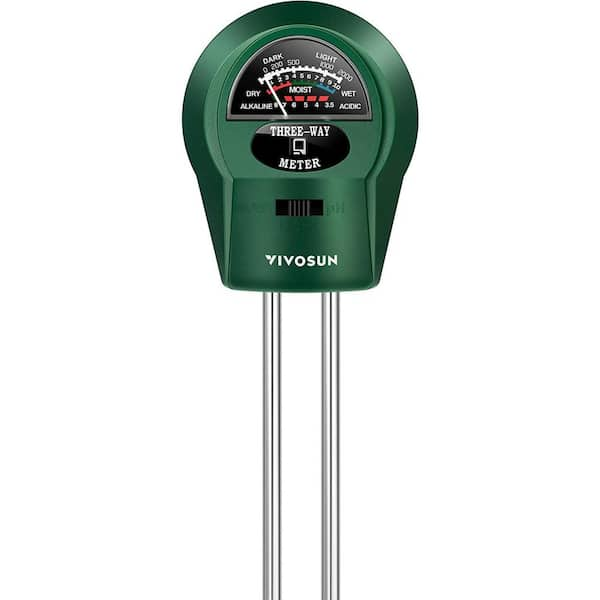Moisture Meter Purchasing Guide: What to Search for in High-Quality Instruments
The Ultimate Guide to Moisture Meters: A Comprehensive Summary and How They Can Conserve You Cash
In the world of structure upkeep, building and construction, and different markets, the value of precisely measuring wetness levels can not be overemphasized. Wetness meters function as vital tools in identifying and monitoring moisture web content in materials, aiding in protecting against pricey problems and guaranteeing the quality of items. Comprehending the subtleties of various types of dampness meters, their applications, and the prospective cost-saving benefits they supply can be a game-changer for professionals and organizations alike. Finding how these gadgets can not only streamline procedures but additionally add to economic savings is a trip worth starting.
Kinds Of Moisture Meters
Numerous types of dampness meters are available for different applications in various sectors. One common type is the pin-type dampness meter, which gauges the electrical resistance in between two pins placed right into a product. This type appropriates for timber, drywall, and various other building materials. Pinless dampness meters, on the other hand, usage electromagnetic sensing unit plates to check a larger location without triggering damage to the material's surface area. These meters are optimal for quickly examining moisture levels in big locations such as wall surfaces and floors.
Additionally, there are likewise specialized dampness meters designed for details materials like soil, grain, or hay. These meters give accurate moisture readings tailored to the distinct residential or commercial properties of the product being checked. Infrared dampness meters gauge the thermal properties of a material to identify its dampness web content non-invasively, making them valuable for applications where pin or pinless meters might not be ideal. Understanding the different sorts of wetness meters offered can help industries choose the most suitable tool for their certain wetness measurement requirements.

Benefits of Using Moisture Meters

Furthermore, utilizing wetness meters can bring about increased energy effectiveness. By determining locations with high dampness degrees, such as leaks or poor insulation, adjustments can be made to enhance power preservation and reduce utility costs. In agricultural settings, wetness meters play an essential duty in optimizing crop yields by allowing farmers to keep track of soil wetness degrees and make informed irrigation decisions. Overall, the benefits of utilizing wetness meters span across various industries, offering economical options and promoting better quality control practices.
Exactly How to Select the Right Moisture Meter
Selecting the appropriate dampness meter includes considering essential elements such as product compatibility, measurement variety, and calibration precision. When picking a dampness meter, it's important to guarantee that the meter is ideal for the details material you will certainly be testing. Various products have differing electrical residential properties that can affect dampness readings, so selecting a meter made for your product is essential for exact results. In addition, think about the dimension series of the moisture meter. Make sure that the meter can spot dampness levels within the array required for your applications. Calibration precision is one more critical factor to maintain in mind (Moisture Meter). Choose a wetness meter with trustworthy calibration to ensure constant and specific readings. Some meters might require routine calibration adjustments, so comprehending the calibration process is necessary. By carefully evaluating these variables, you can select a dampness meter that meets your needs and supplies precise dampness measurements for your jobs.
Appropriate Strategies for Moisture Meter Usage
To guarantee accurate dampness readings and optimize the performance of a moisture meter, utilizing appropriate strategies is vital. When making use of a pin-type dampness meter, put the pins or probes into the material being evaluated till they make complete call. Ensure the pins are perpendicular to the surface to get the most specific analysis. For pinless moisture meters, hold the gadget flat versus the product and relocate it gradually to cover the whole location for an ordinary analysis. It's crucial to calibrate the dampness meter according to the product being examined to boost precision. Take numerous analyses across the surface and average them out for a more trustworthy outcome. Furthermore, make click for more info sure that the material being examined is adjusted to the environment to stop skewed analyses. Normal upkeep of the moisture meter, such as cleaning the pins or sensor, is additionally essential to make certain precise and consistent analyses. By complying with these appropriate techniques, users can rely on their dampness meter to offer credible moisture degrees, helping in stopping costly damages or guaranteeing quality in numerous applications.

Cost Savings Via Moisture Meter Applications
Just how can the calculated utilization of wetness meters lead to substantial price savings across different sectors? In the agriculture industry, wetness meters help in determining the ideal time for gathering plants, protecting against over-drying or excess moisture that can affect the final product's high quality.

Additionally, in the food processing market, wetness meters are vital for checking product top quality and making certain conformity with security guidelines. By precisely determining wetness material in foodstuff, manufacturers can prevent spoilage, maintain quality, and minimize waste, leading to considerable expense financial savings. Overall, the tactical application of moisture meters is a beneficial financial investment that can bring about considerable expense reductions and improved performance throughout different industries.
Conclusion
In verdict, moisture meters are beneficial tools for gauging and spotting dampness degrees in different products. By utilizing the best wetness meter and adhering to proper methods, customers can efficiently stop costly damages triggered by excess dampness.
Dampness meters serve as vital devices in detecting and keeping an eye on moisture web content in materials, aiding in stopping pricey damages and guaranteeing the high quality of items. Infrared wetness meters measure the thermal residential visit the site properties of a product to determine its moisture material non-invasively, making them helpful for applications where pin or pinless meters might not be ideal.Wetness meters use invaluable advantages in accurately monitoring and assessing moisture degrees in varied products and settings. In farming setups, dampness meters play a crucial role in maximizing plant returns by allowing farmers to keep an eye on soil Go Here moisture levels and make informed irrigation choices.In verdict, wetness meters are useful tools for measuring and detecting moisture degrees in different materials.